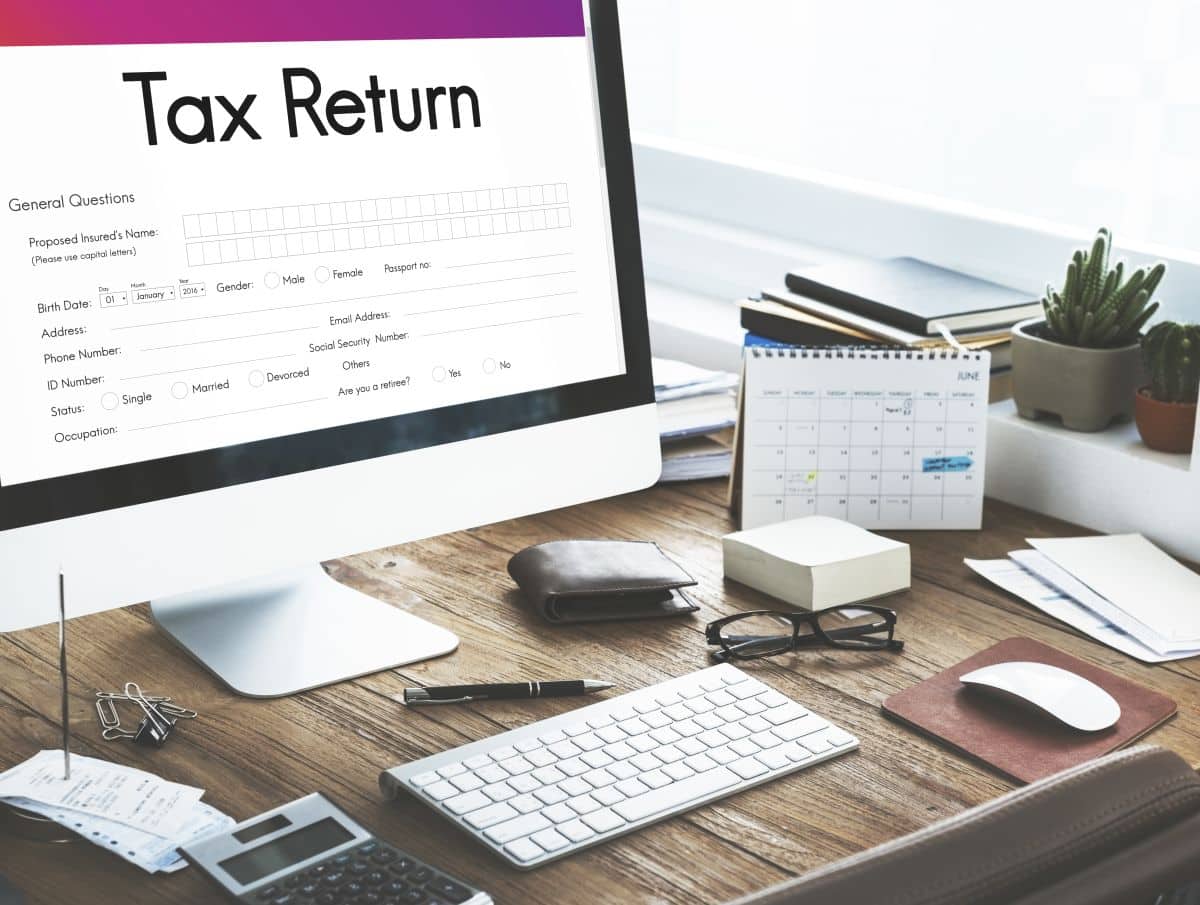Small Business Taxation Tips In Australia
Are you the proprietor of a small business in Australia? If this is the case, it is imperative that you have a solid understanding of the various tax rules that pertain to your specific situation. In the following blog article, we will provide some advice on how to maintain compliance with the tax requirements that apply in Australia.
In addition to this, some of the deductions and exemptions that are open to small businesses will be discussed. You have arrived at the right location, therefore, if you are looking for information regarding the taxation of small businesses in Australia.
Depending on their size and organizational structure, different taxation methods apply to different types of small enterprises in Australia. This can be very perplexing for those who own businesses, since they may not understand which tax plan is applicable to them or how to minimize their tax burden. This post will provide an overview of the various taxation structures that apply to small businesses in Australia, as well as some guidance on how to maintain compliance with these structures.
Because the taxation system might be difficult to understand, here are some suggestions that will assist you in meeting all of your responsibilities. In addition, it is possible that different kinds of taxes will apply to your company; therefore, it is imperative that you have a solid understanding of those taxes that are pertinent to you.
You also need to keep track of your income and expenses, as this will play a role in determining the amount of tax that you are required to pay. Do not be reluctant to seek the services of a tax professional if you find that you require assistance in preparing your tax return.
You, as the owner of a small business in Australia, are probably already familiar with the myriad of different tax laws and regulations that must be adhered to. Nevertheless, despite having this expertise, it is not always simple to remain on top of things and ensure that you are taking all of the appropriate deductions.
Numerous economies rely on the vitality of their small company sector. Around 99 percent of all firms in Australia are considered to be small businesses, and of those, more than half of the workforce is employed by those small businesses. It is vitally important for you, as the owner of a small business in Australia, to be aware of the tax duties and deductions to which you are entitled. This article offers a rundown of some useful taxes pointers that might be applied by smaller enterprises in Australia.
Did you know that as the owner of a small business in Australia, you have a number of unique duties regarding taxation? Don’t worry if you don’t understand what these are or how to fulfil them; this post will provide an overview of the most important aspects.
In addition, we’ll offer some useful advice on how to make tax time a bit less stressful for you. Continue reading in order to obtain all of the knowledge you require, regardless of whether you are still relatively new to operating your own business or if you are just searching for a refresher course.
You may ensure that you are making the most of all of the deductions and allowances that are available to you by employing a number of different strategies and methods. In the following blog post, we will offer some guidance on how small businesses in Australia can keep one step ahead of the competition by providing an overview of the taxes structure that applies to them.
If you own a small business in Australia and this is your first time filing a tax return, congratulations! It is possible to feel overwhelmed, but there is no need to panic because we have some suggestions that can assist you.
Continue reading to gain a better understanding of the fundamentals of Australian small business taxation, such as the types of deductions you are eligible for and how to file your return. It is not difficult to stay on top of your taxes and maintain a streamlined operation of your company if you have some background information and are organized.
Happy filing!
We appreciate you taking the time to read this, and we sincerely hope that you find it informative.
What Is A Small Business?
When it comes to taxes, a company is considered to be small if it has a yearly revenue of less than $10 million, with one notable exception: in order to qualify for small business capital gains tax reductions, the yearly revenue barrier is only $2 million.
The law stipulates that turnover needs to be calculated from the ‘aggregated’ amounts, which means the annual turnover (gross income, excluding GST) of every ‘connected’ or ‘affiliated’ business. This is to prevent businesses from splitting activities so they can slip below the $10 million thresholds and gain access to the various tax concessions. The law also requires that turnover needs to be calculated from the ‘aggregated’ amounts.
What Tax Deductions and Credits Are Available for Small Businesses and How to Claim Them

Have you been scratching your head trying to figure out which of your small firm’s business expenses qualify for a tax deduction? When it comes to completing the tax return for your company, unfortunately, it can be difficult to determine which deductions you are eligible to claim.
When it comes to preparing your company’s tax return, BOQ is aware that every little bit helps, which is why the majority of our branches (60%) are owned and managed by individuals who are also proprietors of small businesses.
This rundown of some instances of expenses that can be claimed as tax deductions has been compiled by the small business banking specialists at BOQ in an effort to alleviate some of the stress that small business owners face.
Small business tax deductions are available
When filing their yearly business tax return, owners of small businesses are eligible to take a deduction for the majority of the costs associated with running their companies, provided that the charges in question are directly tied to the methods by which the business generates taxable income.
The following is a description of some of the things that you can claim on your company tax return, ranging from travel expenditures to running a small business from your own home.
1. Commercials and Corporate Sponsorship
Costs incurred to market your brand and garner exposure for your company are tax-deductible and can be claimed, as can costs incurred to sell “trading stock” and hire personnel in the form of advertising or sponsorship. However, you should make sure that the expenses you incur do not fall under the category of “entertainment,” as this type of spending is typically not tax deductible.
2. Bad Debts
A debt that has not been paid and is considered to be a “bad” debt is eligible for a deduction as long as it was included as assessable income in the current or even a previous income year and that it is written off as bad (uncollectable) in the same year that a deduction is claimed. In other words, the debt must meet both of these requirements for the deduction to be valid.
3. Money That Was Borrowed
The condition that the money must be utilized to produce income that is subject to taxation is a prerequisite for claiming any deductions for the costs that were expended to obtain the borrowed cash.
Legal fees, registration fees, appraisal costs, fees to insure an overdraft, and any commissions paid could be considered part of these expenses. However, in order to cover the entirety of the loan period, you may be required to spread the deductions out over a period of more than one year, depending on the magnitude of the expenses.
These deductions can be taken in addition to the interest that was paid on the borrowed money, which can also be deducted if the money that was borrowed was utilized to generate revenue.
4. Travel for Business Purposes
In most cases, expenses related to travel for business can be claimed. Keep all receipts, as well as your itinerary or travel journal, and of course, your plane tickets. Take into consideration the nature of the trip, its objective, as well as the location, date, and length of time of the trip (and look out for any personal activities that are mixed in, as these expenses are non-deductible).
5. Tax Breaks for Automobile Expenses
As long as the car is only utilized for work-related activities, your business is eligible to deduct the full amount of any costs associated with operating a vehicle, regardless of whether the vehicle is leased or owned by the firm.
You may be eligible to take a specified percentage of deductions for car expenses if your company operates as a sole trader or as a partnership; however, these deductions are subject to restrictions for substantiation.
6. Fringe Benefits

In most cases, you are eligible to claim a tax deduction for any costs that are associated with supplying an employee with a fringe benefit.
7. Insurance
The premiums paid for workers’ compensation insurance are deductible, as are the rates paid for insurance against fire, cars used for business, public liability, theft, and loss of profits.
8. Plant And Equipment (Depreciating Assets)
Larger objects, such as automobiles or buildings, may be claimed as depreciating assets over the course of time. In addition, you may be eligible to deduct (either immediately or over a period of five years) particular capital expenditures incurred during the process of beginning or winding down a firm, provided that an immediate deduction for those costs cannot be taken.
9. Reparations, Substitutions, and Maintenance
Maintaining the machinery, tools, or premises that are used to earn taxable revenue can qualify as a tax deduction as long as the costs in question are not considered “capital” costs.
These deductions include the costs of painting, maintaining plumbing and electrical systems, doing repairs on windows and fences, cleaning gutters, and maintaining machines. In most cases, it refers to the elimination of flaws rather than the substitution of a product, and it does not include any enhancements or labour performed immediately following the purchase of an asset.
10. Superannuation Contributions
If you are self-employed, you may be eligible to receive a tax deduction for any contributions made to your retirement account. However, extreme caution is required if you also have earnings from employment, because those earnings may be subject to super contributions that your employer has already paid.
It should also be tax-deductible for employers to contribute to employees’ retirement funds. This is due to the fact that employers are required by law to make contributions to their employees’ superannuation funds under the superannuation guarantee legislation.
11. Paychecks and Salaries
If you run your enterprise as either a trust or a corporation, you are eligible to take a tax deduction for any salaries given to either your employees or to yourself, provided that the salaries are directly related to the responsibilities associated with running the firm.
A deduction can be taken for salaries paid to employees other than partners in a partnership, but a partnership cannot take a deduction for salaries paid to partners. It is not possible for sole proprietors to make a tax claim for a wage paid to themselves, and it is also not possible to make a claim for money taken out of the business for personal use.
12. Tax Management Expenses
Keeping up with the tax responsibilities of your company can come at a cost, but you can deduct those expenses. This includes the costs of hiring a bookkeeper, having a tax agent prepare and file tax returns and activity statements, attending a tax audit, or appealing or objecting to an assessment, as well as the fees associated with those activities.
13. Telephonic equipment
You can deduct the cost of calls and rent for a telephone that is used solely for business, but installation is not deductible. If the phone is used for both business and personal calls, you are entitled to deduct the full cost of business calls plus a portion of the rental fee from your taxable income. You can choose to base the claim on a representative four-week period instead of an itemized phone account in order to get an average rate for the entire year. This will steer you in the right direction.
Business travel expenses
Imagine that you have traveled in order to attend a business conference or that you have gone on an international business trip in order to meet with a client or a manufacturer. If this describes your situation, the good news is that the majority of the time, you will be able to deduct these travel expenses from your tax return.
Be aware, however, that in order to deduct any travel expenses, those costs must be directly related to the production of taxable income for your company. On this page of the Australian Taxation Office’s (ATO) website, you may find more information on the tax implications of business travel expenses.
When they are away from their place of business on business, proprietors of small businesses can often claim the following:
- Expenses related to travel, such as those incurred when using the plane, the train, the bus, or a cab (including Uber and other rideshare services);
- Expenses for lodging and meals incurred while travelling for business overnight
- Certain motor vehicle expenses.
It is also essential to keep in mind that particular regulations govern the following aspects of each of these categories of deductions:
1. Private travel
Imagine that some of the trips is for private reasons and that some of the activities involved are also private (for example, stopping at an unrelated destination on the route home or extending your trip to have a holiday). If this is the case, you will likely be responsible for paying fringe benefits tax (FBT) on that amount. The Fringe Benefits Tax (FBT) applies to perks like prolonged vacation, things for personal use, and gym memberships that are granted to employees.
2. Costs associated with overnight travel for commercial purposes
There are specific record-keeping standards that must be met for overnight business travel, including the following:
- As proof of your travel costs, you are required to keep documents such as tax invoices, tickets, and boarding passes for up to five nights’ worth of accommodations.
- If you stay in a hotel for six nights in a row or more, you are required to maintain documentation as described above for all of your expenses and keep a trip journal in which you explain the specifics of any business activities that you participate in (including details of what the activities were and the dates, times, locations etc.).
The website of the ATO contains more information that can be accessed there.
3. Costs associated with motor vehicles
You, as the owner of a small business, may be eligible to take a tax deduction for a portion of the expenditures associated with motor vehicles, such as cars and other vehicles, that are used in the operation of your company. The costs you can claim, as well as the method you use to compute them, are contingent upon a number of criteria, including the following:
- Do you own the vehicle outright or do you lease it?
- How the vehicle is utilized; specifically, is it only used for professional purposes, or is it also used for personal reasons?
- The organizational framework of your company;
- The kinds of vehicles that you make use of in the operation of your company.
Once this is determined, you will normally be able to claim the following sorts of deductions on your business tax return, to the extent that the vehicle is being used for business purposes:
- Maintenance and maintenance of motor vehicles;
- Fuel and oil;
- The interest on a loan for a company vehicle;
- Lease payments for commercial vehicles;
- Insurance premiums for commercial motor vehicles;
- Registration of vehicles used for business;
- Depreciation deductions on your taxes if you own the car outright.
If you use the vehicle for both your business and your personal life, you will need to determine how much of the vehicle’s cost is attributable to business use and how much is attributable to personal use. However, only the business component will be tax-deductible.
For the sake of filing your company tax return, you should make it a habit to maintain all of the receipts, tickets, and itineraries associated with any business travel you undertake.
General operating expenses
Expenses directly related to the operation of your small business are eligible for a deduction, in most cases, for owners of small businesses.
These expenditures may include those associated with:
- Stationery;
- Promotional activities, including marketing and sponsorship;
- Expenses related to the upkeep of websites and other internet businesses;
- Relations with the public and various social media platforms;
- Getting rid of waste and recycling it;
- Interest rates on loans to businesses;
- Costs associated with registering a business name
- Costs of accounting for a small business.
If you have a small business and are required to make financial investments in order to create income, it is quite likely that you will be eligible to take a tax deduction for those investments.
Among the other costs that you might be eligible to deduct are the following:
- Checks for employment involving children;
- Books, magazines, and newspaper and magazine subscriptions;
- Uniform requirements include specific safety clothing, as well as the expenditures associated with dry cleaning.
You have to be able to establish that you incurred the expense in order to earn an income for your small business in order to be eligible to claim any general operating expenses related to your small business. A fantastic technique to demonstrate that costs were incurred for business-related reasons is to maintain an expense log and record the time, date, and rationale for each purchase.
Home-based businesses
Run a microbusiness (including an online enterprise) from the comfort of your own home. If you run a business out of your house, you might be eligible to deduct some of the expenses that are associated with the portions of your home (such a home office or study) that you use for work-related activities. These costs are often divided into the following categories:
- Occupancy expenses, which may include interest on a mortgage or rent, as well as council rates and charges for homeowners insurance;
- Expenses for running the business are comparable to those for operating the business and include things like the cost of gas and electricity, the cost of repairs to furniture and other furnishings, the cost of phone and internet service, and the cost of cleaning.
However, what you are eligible to claim will be determined by your individual circumstances as well as the manner in which you run your business from home. On the website of the ATO, there is additional information that might assist individuals who run home-based small enterprises in determining what tax deductions they are eligible to claim.
It is important to keep in mind that small business owners who operate their companies from their homes may be subject to paying capital gains tax upon the sale of their homes. This is determined by the share of the profit made from the sale of the residence that was put toward the operation of the business (such as a study).
Don’t Blur The Lines Between The Company’s Money And Your Own

Be careful not to confuse the money that belongs to the company with your own.
The so-called “deemed dividend” laws end up snaring a significant number of small enterprises. According to the tax law, loans and advances made to shareholders of private companies or their associates are considered to be taxable and unfranked dividends for the shareholders of the private companies.
The purpose of these regulations is to prevent the profits of privately held enterprises from being given to shareholders in the form of tax-free “loans.”
If you find yourself in the position of having to borrow money from a company in which you are a shareholder, you should make every effort to ensure that the money is repaid before the deadline for the firm’s tax return for the year.
Declare a dividend and count the amount received as income if that can’t be done; in such case, the dividend will be franked, assuming that’s anything that can be done with it.
Another option is to sign into a loan arrangement that complies with the requirements, complete with a stated loan length, a commercial interest rate, and capital payments.
Consider the tax ramifications of using firm assets for private use at a price that is lower than their current market worth because the rules for considered dividends can potentially catch this scenario.
The amount of the “deemed dividend” is calculated by deducting any money that was actually paid for the use of the assets from the “arm’s length price” that would have been paid for the use of the assets under normal market conditions.
It is also something that should be taken into consideration to make a so-called “in-specie” dividend, which is the transfer of the asset to the shareholder rather than the payment of a cash dividend. The current value of the asset will determine whether or not this course of action is cost-effective.
Alternately, if the shareholder has previously provided the firm with financial assistance, the asset could be transferred to the shareholder as a return of the money that was loaned to the company, subject to the valuation of the asset.
Things that are essential to keep in mind
1. Take advantage of the Temporary Full Expenses (TFE) incentive as much as you possibly can.
Did you know that if you qualify for the TFE incentive offered by the federal government, you could be eligible to claim an instant tax deduction for the total cost of any depreciating assets that you have just purchased?
The tax-free earnings (TFE) incentive is available for qualified assets that are purchased and installed ready for use between 7.30 pm on October 6, 2020, and June 30, 2023. If you purchased your item before October 6th, you may still be eligible for a tax benefit under the earlier Instant Asset Write-Off plan. This applies only if you purchased your asset before October 6th.
Instead of taking a tax deduction throughout the asset’s life, which may be several years, this can assist your cash flow by reducing the amount of tax you pay in the first year that you acquire and utilize the item. This is preferable to taking a deduction over the asset’s whole life. Have a conversation with your accountant about whether or not you qualify for this program and whether or not it is appropriate for your unique set of circumstances.
2. Always remember to keep a record
You need records to support whatever claim you make in your business tax return. These records can range from tax invoices to plane tickets, from business credit card statements to business automobile leasing statements, and even from business bank account fees. Therefore, make sure that your data are well-organized and stored in a secure location so that you are not at a disadvantage when the time comes.
3. Enlist the assistance of professionals that specialize in running a small business.
When it comes to something as complicated as filing the tax return for your company, it is in your best interest to seek the assistance of an experienced tax accountant who can guide you through the process of claiming the appropriate expenses and extracting the maximum amount possible from your refund.
Tips From Small Businesses
1. Make use of your so-called “keystone habits”
James Clear, an entrepreneur and blogger, suggests that we should identify one or two habits or routines that will allow everything else in our lives to function more smoothly. It is not nearly as difficult as you might believe to improve your lifestyle and become the type of person who “has their act together.”
2. Practise mindfulness
According to Jodie Macleod, a freelance journalist and editor, it boosts memory and concentration while also boosting productivity and lowering stress levels. “Being mindful” means paying attention to the here and now without passing judgment on what you see, hear, feel, or otherwise experience. This includes being aware of your own thoughts, feelings, and sensations as well as your breath.
3. Every failure is a necessary step on the path to achievement.
According to Lucinda Lions, who works with the branding agency Slogan Creator, it is essential to have a positive attitude whenever it is feasible and to view failure as feedback. “I tell myself that tomorrow is a whole new day, which means that tomorrow I will have a new opportunity to think differently and make better decisions.”
4. Make hires from within your existing connections.
After the author of “I Quit Sugar” Sarah Wilson began to experience feelings of being overburdened with work, she made the decision to hire an assistant. She reached out to the people in her neighbourhood since she was aware that taking someone on would require sacrifice. They continue to enjoy a fruitful working relationship even after five years have passed. “Start started on a small scale, but be sure to keep the door open for expansion later on.”
5. Keep it manageable
According to Kate James, a start-up coach at Total Balance, it is essential to keep in mind that it is not all about continuous expansion; being bigger isn’t necessarily better if you’ve lost the ability to appreciate what you do. “You must first choose how you will measure success. My mantra is that I have to have passion for what I do.”
6. Recognize when it is appropriate to perform work without payment.
According to Vanessa Emilio of Legal123, there are occasions when it is beneficial to labour for free. “‘Nothing’ doesn’t mean offering a whole job or product for free. It may imply a free initial consultation, a free part of a project, or a free muffin with each purchase of a cup of coffee.”
7. Continue to be enthusiastic and have faith in your company.
According to SEO copywriter and consultant Kate Toon, start-ups should consider the requirements and concerns of potential customers and formulate logical replies in order to persuade customers that their company is the answer to their problems. “When it’s appropriate, inject some warmth, professionalism, and even a little humour. Being human is far preferable to being bored.
8. Learn to say no
According to Andrew Griffiths, an author and media commentator, it is important to recognize when a client has unreasonable expectations and address them as soon as possible, or else consider forwarding them to another provider.
First, give a formal, structured response a shot, and then keep coming back to it. Try saying something like, “Thank you for the opportunity, but we are so heavily committed that we are unable to give your project the time and attention it needs.” as an illustration.
9. Create fans
Consider ways in which you might generate interest through word-of-mouth if you are working with a limited marketing budget. Warren Harmer, from The Business Plan Company, talks about a small florist that achieved this very well by 1) Providing quality; 2) Providing value; 3) Motivating team members to love their jobs and customers, and 4) Creating a physical atmosphere that delighted their target market.
10. Use your competitors as a source of motivation.
Life coach Kathryn Hocking recommends that you look into what your rivals are doing in order to better understand what sets you apart from them. Your relationship with them does not have to be antagonistic; rather, they could serve as a guide, a collaborator, or even a friend. “Focus on your own purpose and connect with friends who share similar beliefs and who motivate you to achieve greater levels of accomplishment,” the advice reads in the article.
11. Be aware of when it’s time to take a “dream detour.”
It is not always easy to choose whether you should seize a new opportunity or continue along your current course. According to Lynda Bayada, an expert in business mentoring, you need to outsmart your intellect in order to listen to your heart. “Allow yourself some space, and have faith in yourself. And you’ll realize that’s the first step towards winning the war.”


















